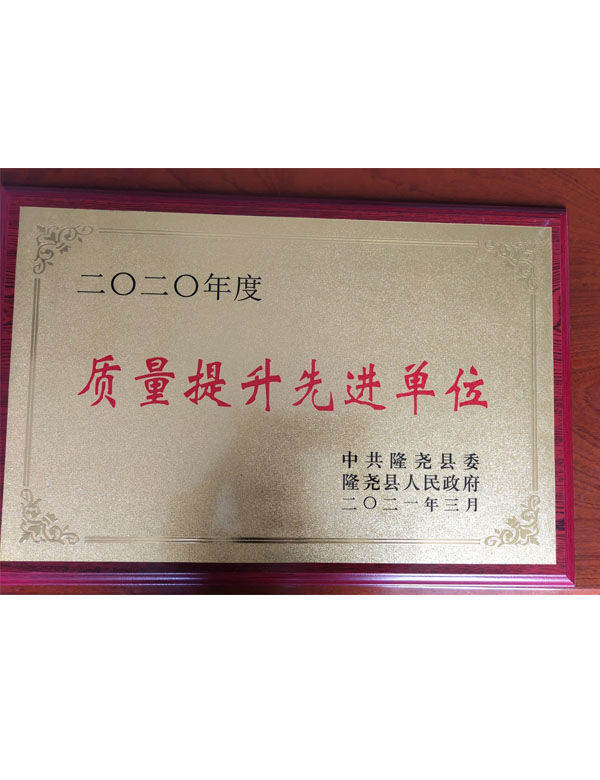Exploring the Applications and Benefits of Anionic Polyacrylamide in Various Industries
The Versatile Applications of Anionic Polyacrylamide
Anionic polyacrylamide (APAM) is a polymer widely utilized across various industries due to its unique properties and versatility. As a water-soluble polymer, APAM boasts excellent flocculating, sedimentation, and viscosity-enhancing characteristics, making it indispensable in numerous applications, especially in water treatment, agriculture, and oil recovery.
Water Treatment
One of the most significant uses of anionic polyacrylamide is in water treatment processes. APAM is frequently employed to aid in the removal of suspended solids and impurities from water. In wastewater treatment plants, the polymer acts as a flocculant, binding together fine particles to form larger aggregates or flocs that can be easily removed from the water. This process improves the clarity and quality of the treated water, making it safer for discharge into natural water bodies or for reuse in various applications. Furthermore, APAM can enhance the efficiency of sludge dewatering, reducing the volume of sludge produced and the associated disposal costs.
Agriculture
In agriculture, anionic polyacrylamide serves multiple functions that significantly benefit crop production and soil management. As a soil conditioner, APAM improves soil structure by reducing erosion and enhancing moisture retention. This is particularly beneficial in arid regions where water scarcity is a concern. By forming a gel-like structure in the soil, APAM helps to retain water and nutrients, allowing for better root growth and increased crop yield. Additionally, the polymer can improve the efficacy of fertilizers by aiding in their controlled release, resulting in more efficient nutrient uptake by plants.
Moreover, APAM is often used in irrigation systems to improve water distribution and reduce runoff. Its ability to stabilize soil aggregates helps maintain soil moisture, allowing farmers to optimize water use and reduce the frequency of irrigation. This is crucial for sustainable agricultural practices, particularly in the face of climate change and increasing water scarcity.
anionic polyacrylamide uses

Oil and Gas Industry
Anionic polyacrylamide is also extensively used in the oil and gas sector, particularly in enhanced oil recovery (EOR) processes. The polymer is injected into oil reservoirs to increase the viscosity of water, which helps push more oil towards the production wells. By improving the sweep efficiency of water injection, APAM contributes to the extraction of additional oil that would otherwise be left behind. This not only increases the profitability of oil operations but also contributes to more efficient resource utilization.
Environmental Protection
Another critical application of anionic polyacrylamide is in environmental protection. The polymer is used in sediment control measures, particularly in construction sites and waterways, to prevent soil erosion and the loss of valuable topsoil. APAM forms a protective barrier that minimizes the impact of stormwater runoff, thereby reducing sedimentation in rivers and lakes. This application is vital for maintaining water quality and protecting aquatic ecosystems.
Conclusion
In conclusion, anionic polyacrylamide is a versatile polymer with a wide range of applications across various industries. Its effectiveness in water treatment, agriculture, oil recovery, and environmental protection underscores its importance in contemporary practices. As the challenges associated with water scarcity, soil degradation, and resource extraction continue to grow, the demand for innovative solutions like APAM will likely expand, further highlighting the need for sustainable practices that leverage the unique properties of this remarkable polymer. Whether it’s enhancing agricultural productivity or improving wastewater management, anionic polyacrylamide remains a vital tool in promoting environmental sustainability and resource efficiency.
-
Water Treatment with Flocculant Water TreatmentNewsJun.12,2025
-
Polymaleic AnhydrideNewsJun.12,2025
-
Polyaspartic AcidNewsJun.12,2025
-
Enhance Industrial Processes with IsothiazolinonesNewsJun.12,2025
-
Enhance Industrial Processes with PBTCA SolutionsNewsJun.12,2025
-
Dodecyldimethylbenzylammonium Chloride SolutionsNewsJun.12,2025





